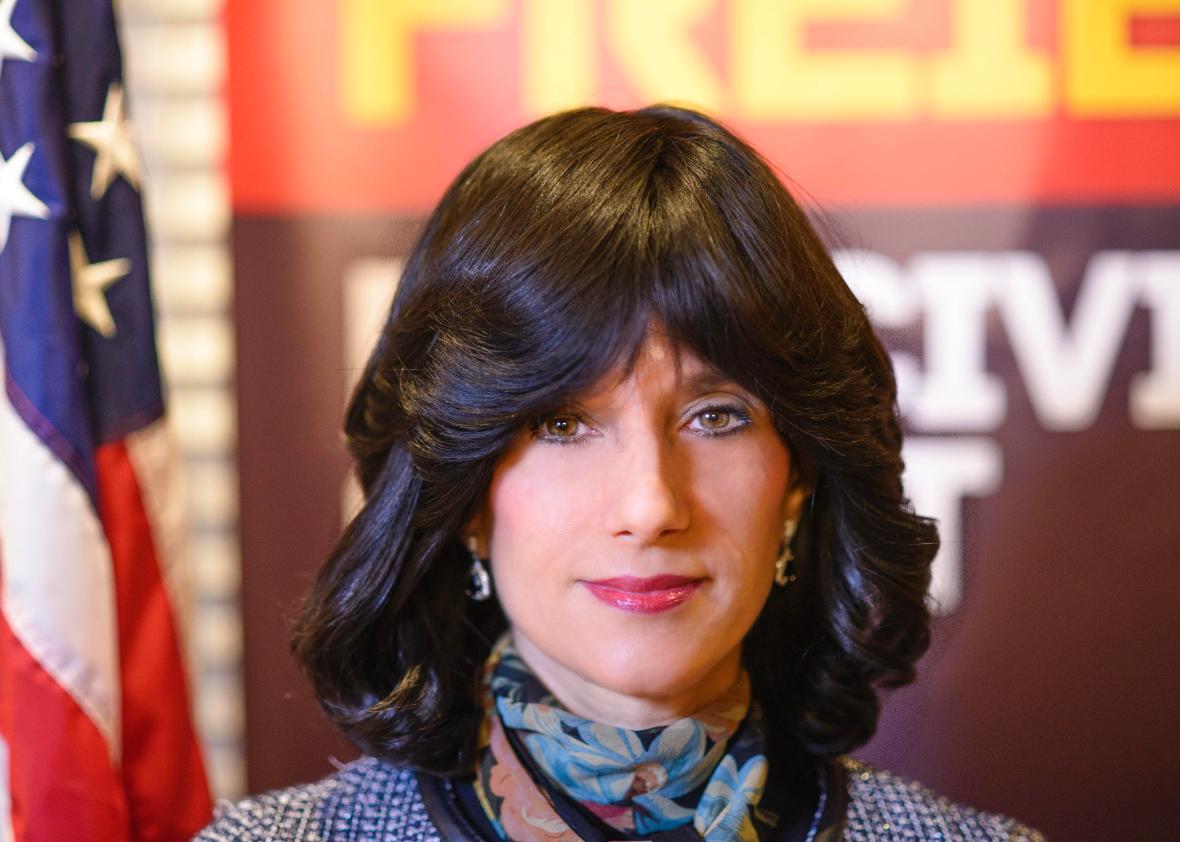Orthodox Jewish women attend women-only hours at swimming pools and sit in their own sections on buses and in synagogues, all to avoid touching men who aren’t family members. But during emergency childbirth—a much more intimate situation than a bus ride—many Orthodox women in Brooklyn have had to rely on an all-male Jewish emergency medical service called Hatzolah. So five years ago, a group of Orthodox women banded together to launch Ezras Nashim, an all-female EMT unit that ministers to women in childbirth or undergoing gynecological emergencies. “It has nothing to do with feminism,” the project’s leader, Rachel Freier, said at the time. “It has to do with the dignity of women and their modesty.”
This week, Freier forges another new path, starting work as the first Hasidic woman to become an elected official in the United States. (There’s no comprehensive list of public officials’ religions, but no one is aware of any precedent for her election.) Freier took the bench Tuesday as a civil court judge in Brooklyn, where she is a member of the Hasidic Jewish community, a subset of ultra-Orthodox Judaism known for its strict gender roles and self-segregation from the secular world. Her success defies both norms. “This is a dream,” Freier told attendees at her swearing-in ceremony last month. “It’s the American dream.”
Freier lives out a practical religious feminism that can be unsettling to both traditional believers and outsiders. One prominent Jewish blog called Ezras Nashim a “new radical feminist agenda,” for example. (It was not a compliment.) But the service only exists because of Freier’s commitment to her faith’s radically separationist customs—the same tradition that has led to justifiable outrage over some Orthodox men’s disruptive refusal to sit next to women on airplanes, for example. Freier doesn’t seem to have time for such debates. She became an EMT and eventually a licensed paramedic while working on the ambulance project.
Her path to the judiciary has come with some unusual hurdles. After graduating from high school, she worked as a legal secretary and paralegal while supporting her husband through a decade of Talmudic studies. She started college at age 30 with three children, attending a women-only program friendly to Orthodox Jews. By the time she graduated she had three more children. When you have six kids, leaving the house, ever, is an accomplishment. But Freier went on to attend law school part-time and then become a real estate lawyer. She volunteers in family court, and has helped launch several non-profit organizations, including one that helps Orthodox boys who struggle in school to earn their GEDs.
It’s hard to emphasize how impressive Freier’s career is in her religious context. Only 6 percent of Hasidic women in the New York City area hold bachelor’s degrees, according to a 2011 study by the UJA-Federation of New York. (Even for Hasidic men, the number is just 11 percent.) Hasidism arose as a revival movement in 18th-century Europe, and it is marked by its cultural conservatism. Many American adherents still speak Yiddish; women, forbidden to display their natural hair in public, wear wigs or scarves as coverings. Hasids and other ultra-Orthodox Jews make up just 6 percent of the American Jewish community, according to a 2013 Pew report.
Even as Freier’s career as a lawyer, activist, and politician has advanced, she has remained devout. “I didn’t want to ever be considered someone who was turning away from my community,” Freier told the Associated Press recently. Her swearing-in ceremony included a Yiddish rendition of “God Bless America,” and she switched between English, Hebrew, and Yiddish in her speech. “I will teach you about the mysterious Hasidic world, often shrouded in secrecy with many misconceptions,” she told the sitting judges who had assembled to see her join their ranks. “One of the misconceptions that there are is about women, and I hope to clear that up.”
